Using Open Document Format makes it easy to share files and collaborate, even when your colleagues don't use the same software as you. ODF is internationally standardized, and because it's open source, it's freely available to software developers. It's a great way to ensure your documents are easy for others to open and use. So, how do you convert Word to ODF simply?
This article will show you how to easily convert from Microsoft Word into Open Document Format. We'll also go into detail on the best software to use for converting between a huge range of file types, so hang around to learn more.
Part 1: Can I Convert Word to ODF (Open Document Format)?
Yes, it's possible to convert Word to ODF. There are many file extensions compatible with ODF, including .xml, .odt, and .fodt for word processing documents.
You have a range of options when it comes to performing the conversion. You can use the Save As feature in Word to save a document in Open Document Format. The disadvantage of this method is that you need to repeat the process for every file individually. Alternatively, you can use other software, such as UPDF which can convert single and multiple files with the same ease.
UPDF is designed for working with PDFs, and it also supports converting between lots of different file types, including allowing you to convert Word to ODF.
It's free to download UPDF and try it out, so there's no downside here. Jump over to UPDF and download it now, then come back and follow along while we show you how to convert to ODF.
Windows • macOS • iOS • Android 100% secure
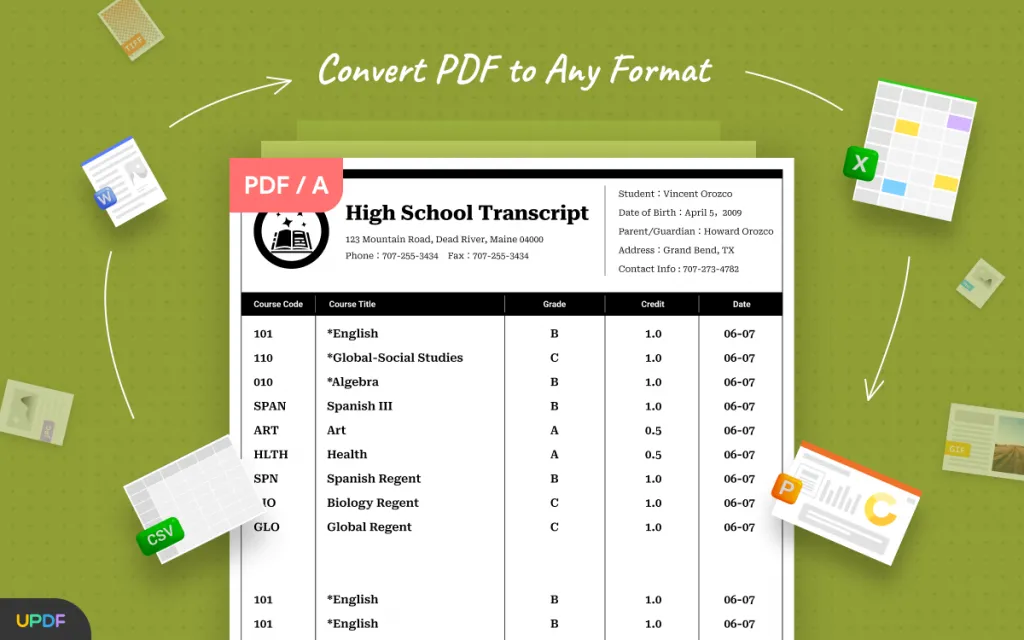
You might also be interested in our article on how to convert Word to XML (Extensible Markup Language. We take you through the simple process of converting your Word document into XML, both for single files and for batch processing.
Part 2: How To Convert Word to ODF, Step-by-Step for Single and Batch Conversion
So, let's look at how easy it is to convert your Word document into ODF. We'll take it step-by-step so you can follow along and easily convert doc to ODF.
As outlined above, one of the best tools to use for this is UPDF. There's another download link below if you skipped it the first time around. It's quick to download and the setup process is fast. Grab it now so you can follow along easily with the steps.
Windows • macOS • iOS • Android 100% secure
If you're going to pick one tool to help with conversions across different formats, UPDF should be it.
UPDF makes it easy to convert between PDF and Office formats, as well as many other file types. It's also a highly functional tool for creating and editing PDF documents, and the AI assistant makes your workflow faster and more efficient.
Give it a try.
Just a quick note before we dive into the steps. We strongly advise you to retain a copy of your file with the original formatting, since conversion to ODF might cause changes.
How to convert a single Word document to ODF
When you only need to convert a single Word document, follow this four-step process to get it done quickly and easily:
- Open UPDF and go to File > Create > PDF from Word.
- Select the file you want to work with, click 'Open' and wait a moment for UPDF to perform the conversion.
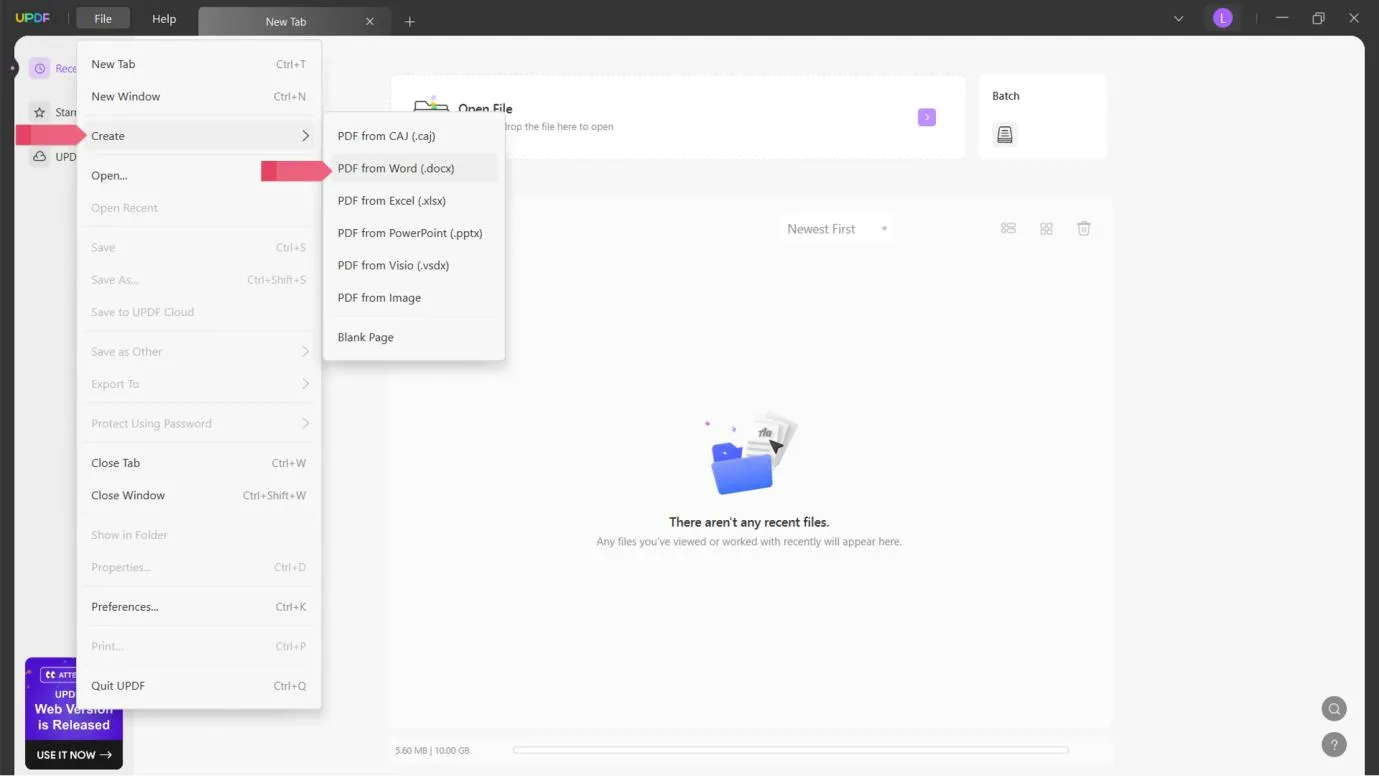
- Now choose Export > XML from the menu on the right-hand side.
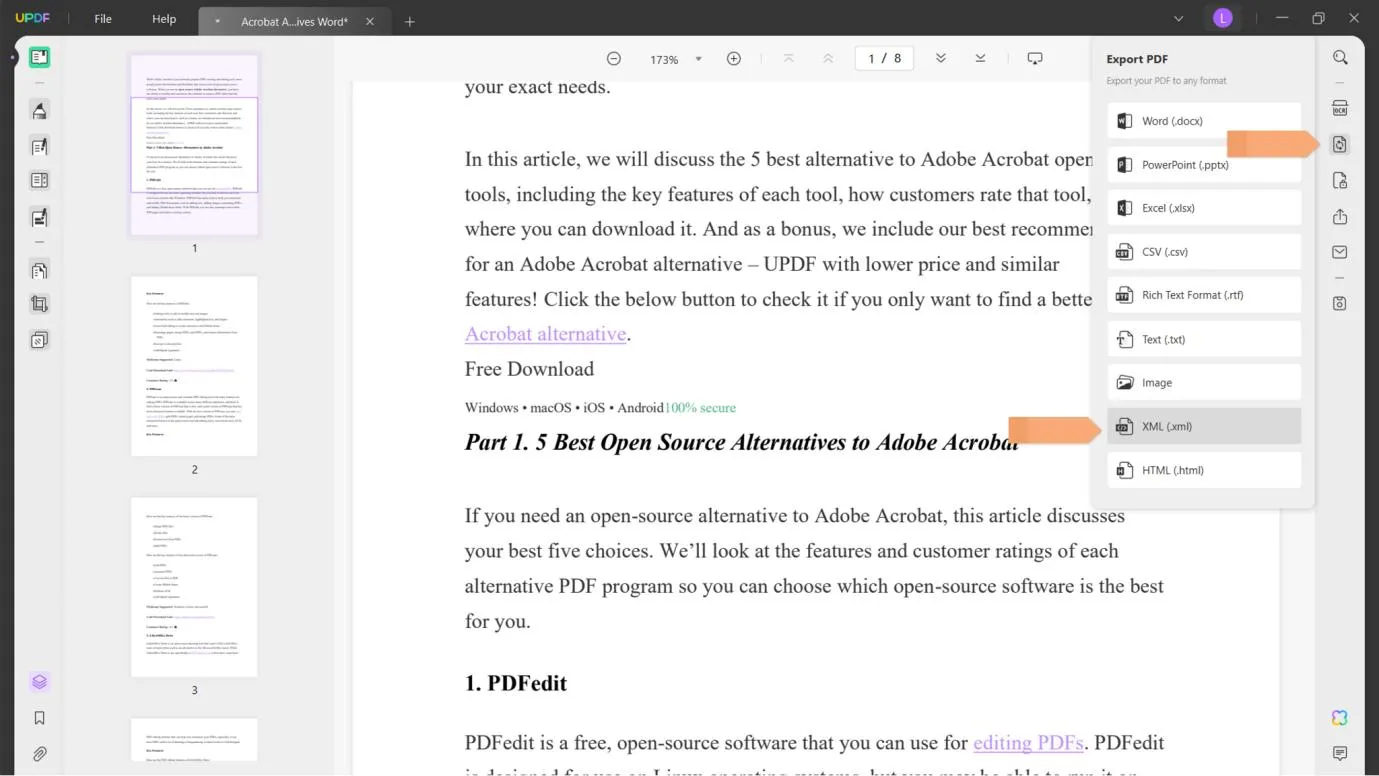
- You can then adjust the settings in the dialogue box, and select the folder where you'd like UPDF to save the XML file.
How to convert multiple Word documents to ODF
It's just as easy to convert multiple documents at the same time using UPDF's batch processing tools:
- Open UPDF and go to File > Create > PDF from Word.
- Select all the files you'd like to convert, click 'Open', and allow UPDF to create the files.
- Save each of these new files.
- Now return to UPDF's home screen and choose 'Batch,' then 'Convert'.
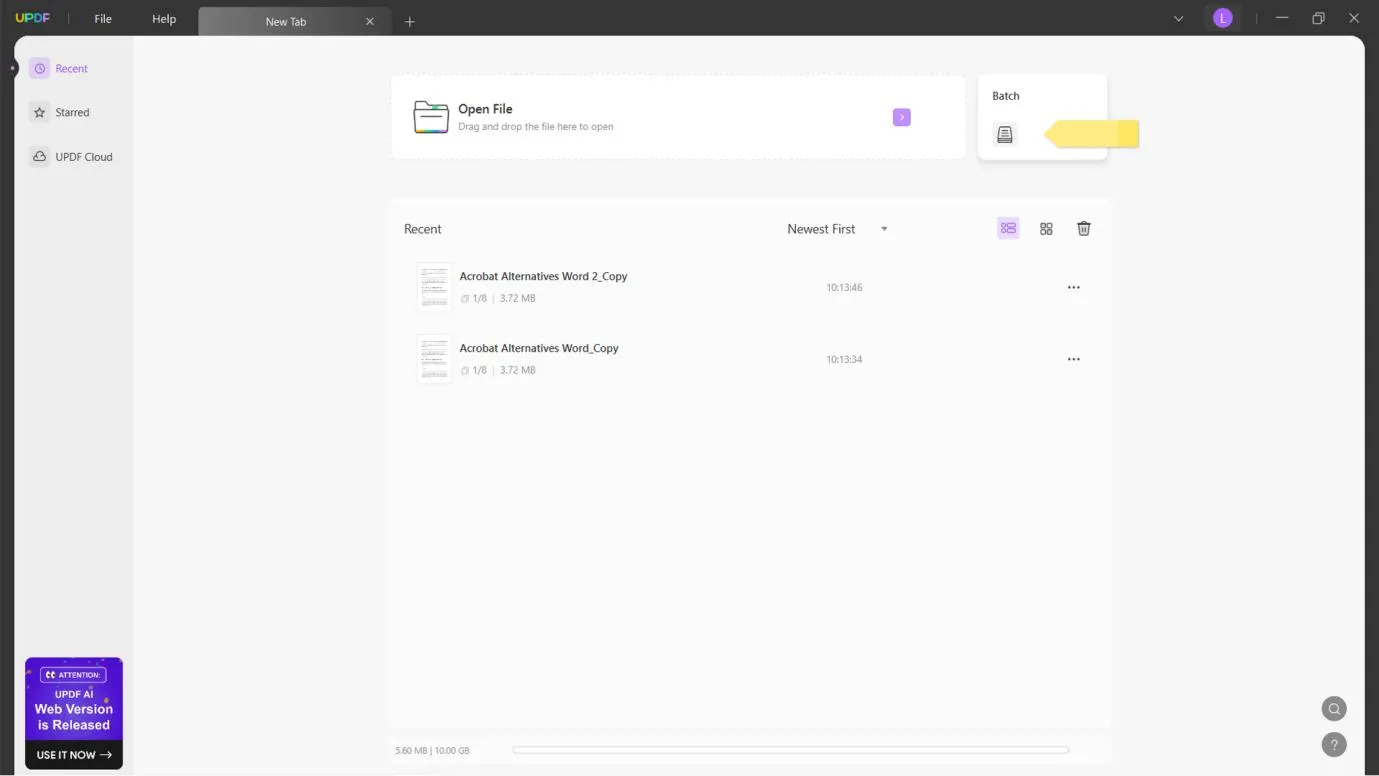
- Add the files you want to convert to Open Document Format, and then select XML as your output format.
- Click 'Apply' and then choose the desired save location.
Part 3: Why Should You Use UPDF for Word to ODF Conversion?
UPDF makes file conversions quick and easy.
It functions as a bridge between different pieces of software, and different file types. It's a cinch to convert a single file to ODF. It's also just as easy to use the batch features to convert multiple files in one go.
UPDF is the perfect tool for file conversions:
- Batch convert multiple files at once to save time.
- Convert between many different file types, including Office formats and various image types.
- Use OCR to convert scanned documents to PDF and other formats.
- Convert a photo to PDF instantly.
As well as making it easy to work with different document formats and file types, UPDF should be your go-to tool for creating and editing PDFs.
- Use AI to help you engage with PDFs and understand them more fully.
- Edit every aspect of a PDF, from text through to images.
- Annotate with sticky notes and custom stamps.
- Use electronic and digital signatures, and fill in forms with ease.
- Compress PDFs without losing quality.
- Use batch processing to insert sections into multiple files at once.
- Also perform a range of other batch tasks making your work go more quickly.
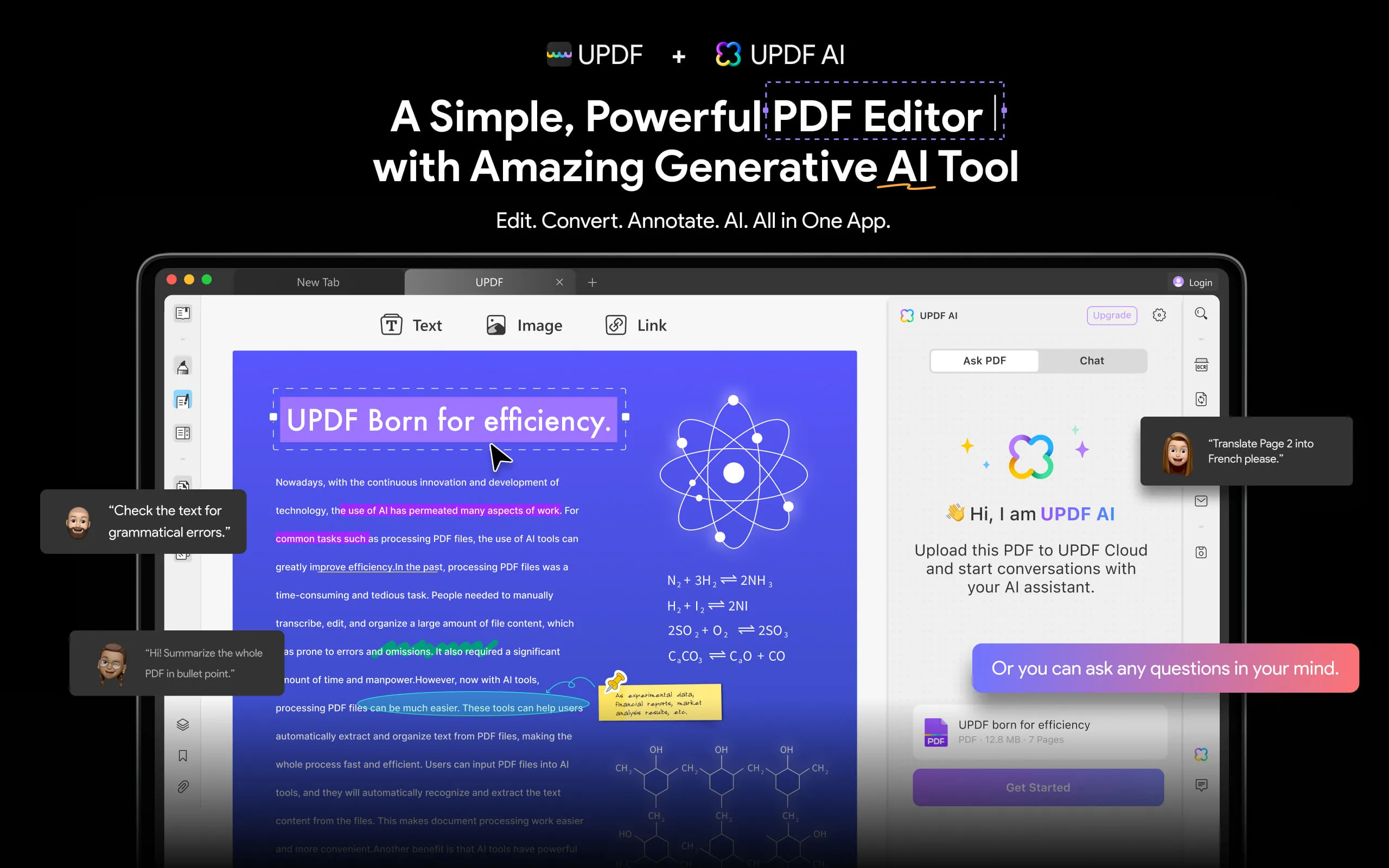
Conclusion
Using Open Document Format lets you share documents easily with others, regardless of their preferred software. UPDF is a great tool for bridging between different file types while retaining the original formatting of a document. Use it to convert files to and from PDF and a host of other formats effortlessly.
It's also a tool you'll find yourself turning to frequently in other aspects of work. Let the AI assistant help you speed through required reading, or convert existing content into new formats. You'll soon find it an indispensable part of your daily workflow.
Give it a chance today and see how useful it is for yourself.
Windows • macOS • iOS • Android 100% secure
 UPDF
UPDF
 UPDF for Windows
UPDF for Windows UPDF for Mac
UPDF for Mac UPDF for iPhone/iPad
UPDF for iPhone/iPad UPDF for Android
UPDF for Android UPDF AI Online
UPDF AI Online UPDF Sign
UPDF Sign Edit PDF
Edit PDF Annotate PDF
Annotate PDF Create PDF
Create PDF PDF Form
PDF Form Edit links
Edit links Convert PDF
Convert PDF OCR
OCR PDF to Word
PDF to Word PDF to Image
PDF to Image PDF to Excel
PDF to Excel Organize PDF
Organize PDF Merge PDF
Merge PDF Split PDF
Split PDF Crop PDF
Crop PDF Rotate PDF
Rotate PDF Protect PDF
Protect PDF Sign PDF
Sign PDF Redact PDF
Redact PDF Sanitize PDF
Sanitize PDF Remove Security
Remove Security Read PDF
Read PDF UPDF Cloud
UPDF Cloud Compress PDF
Compress PDF Print PDF
Print PDF Batch Process
Batch Process About UPDF AI
About UPDF AI UPDF AI Solutions
UPDF AI Solutions AI User Guide
AI User Guide FAQ about UPDF AI
FAQ about UPDF AI Summarize PDF
Summarize PDF Translate PDF
Translate PDF Chat with PDF
Chat with PDF Chat with AI
Chat with AI Chat with image
Chat with image PDF to Mind Map
PDF to Mind Map Explain PDF
Explain PDF Scholar Research
Scholar Research Paper Search
Paper Search AI Proofreader
AI Proofreader AI Writer
AI Writer AI Homework Helper
AI Homework Helper AI Quiz Generator
AI Quiz Generator AI Math Solver
AI Math Solver PDF to Word
PDF to Word PDF to Excel
PDF to Excel PDF to PowerPoint
PDF to PowerPoint User Guide
User Guide UPDF Tricks
UPDF Tricks FAQs
FAQs UPDF Reviews
UPDF Reviews Download Center
Download Center Blog
Blog Newsroom
Newsroom Tech Spec
Tech Spec Updates
Updates UPDF vs. Adobe Acrobat
UPDF vs. Adobe Acrobat UPDF vs. Foxit
UPDF vs. Foxit UPDF vs. PDF Expert
UPDF vs. PDF Expert


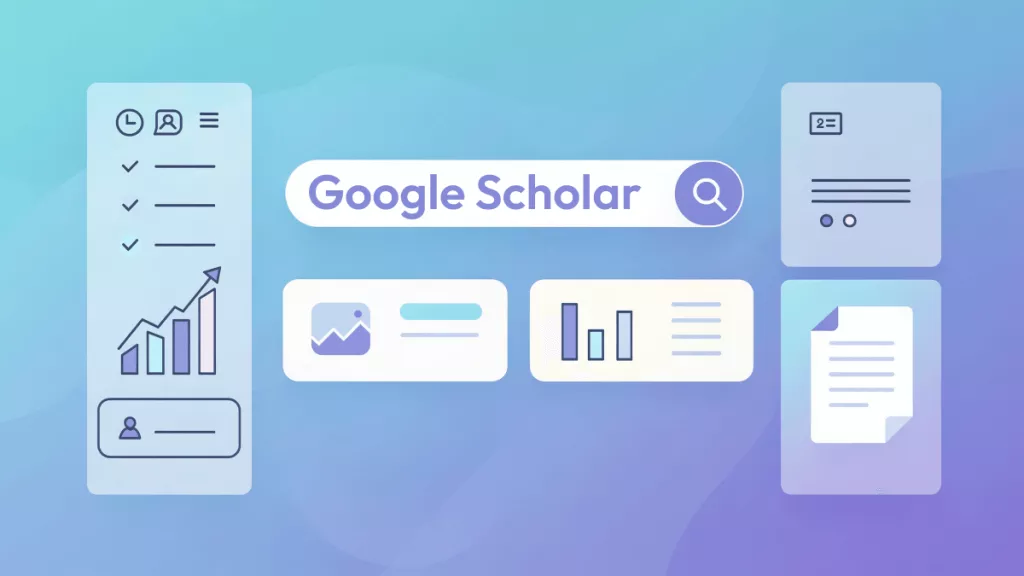


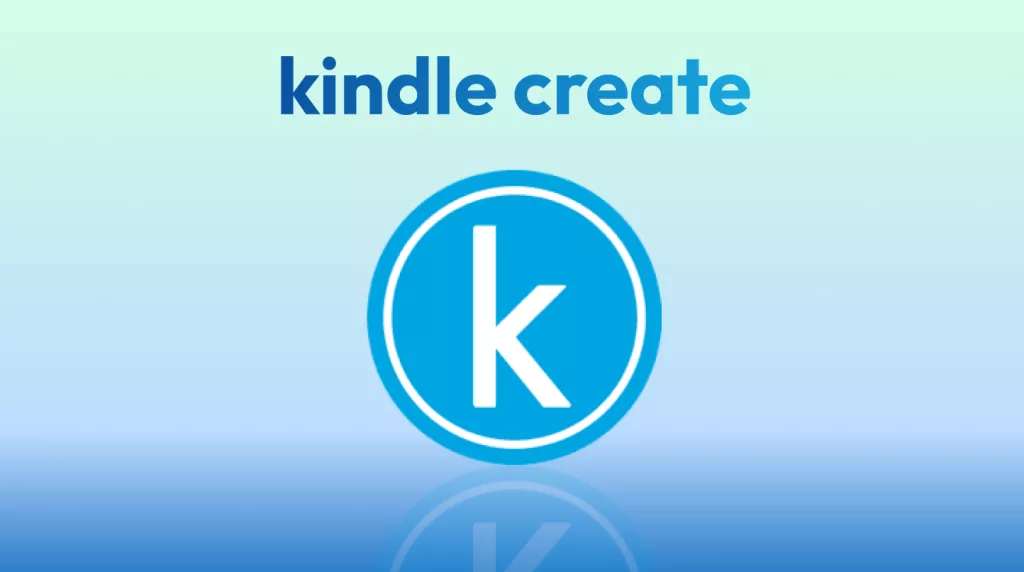
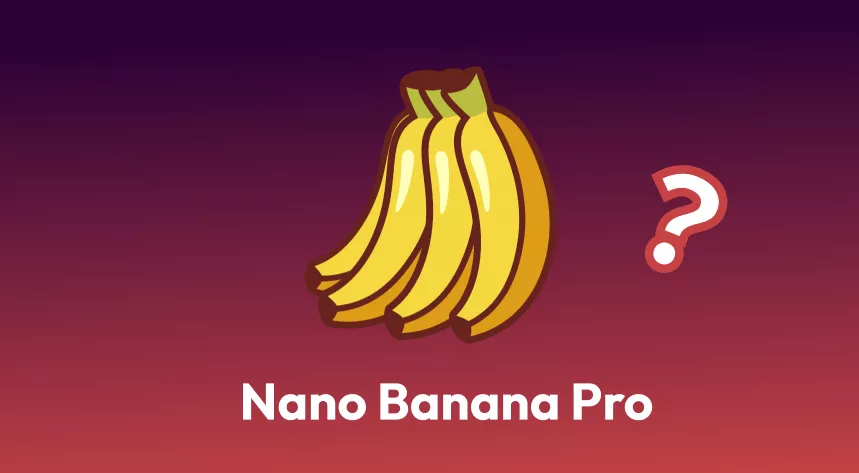
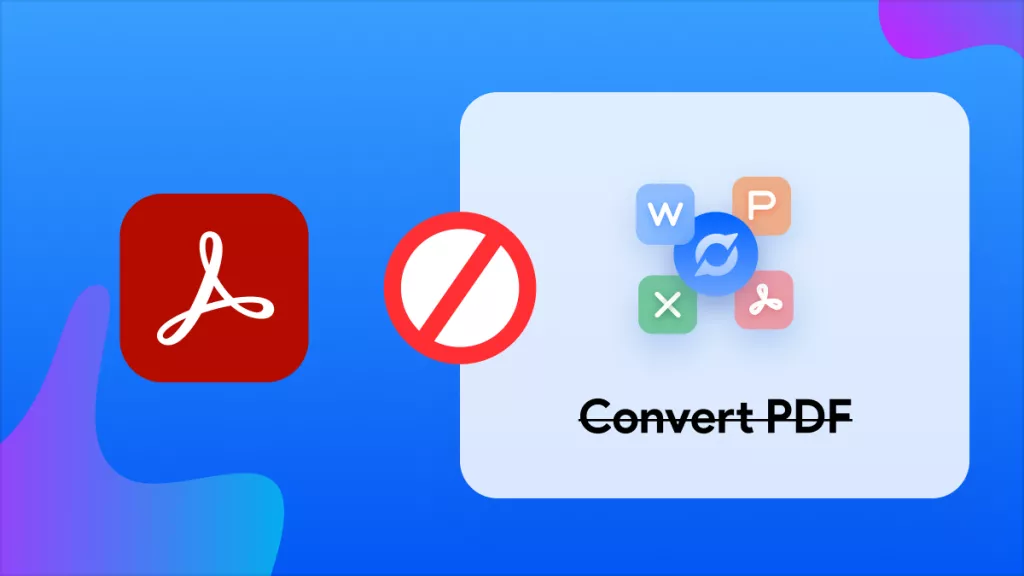
 Enid Brown
Enid Brown 

 Delia Meyer
Delia Meyer 
 Enrica Taylor
Enrica Taylor 